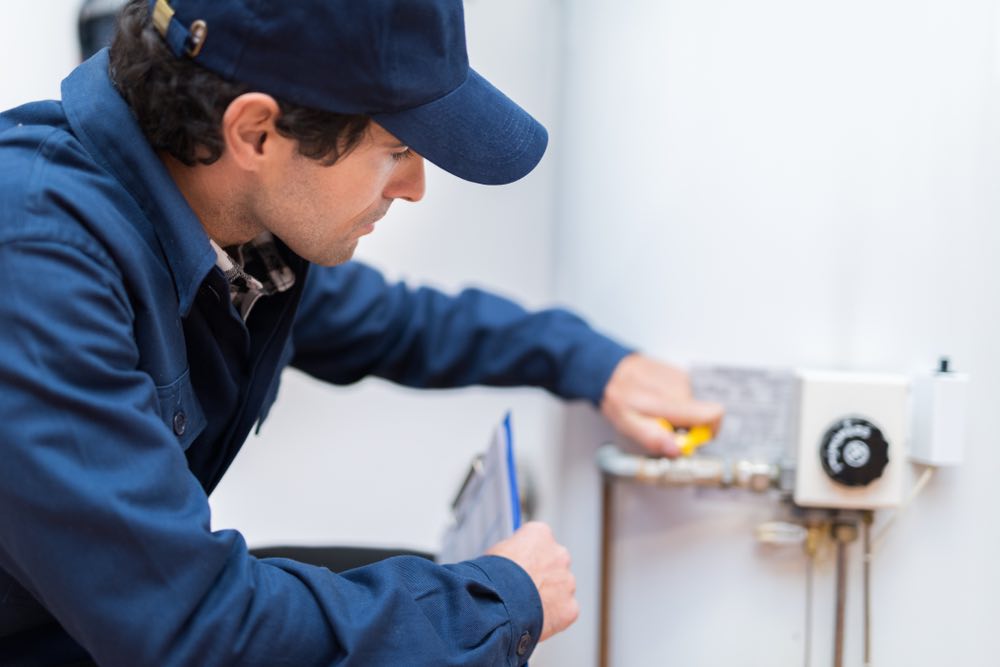When the temperatures outside drop, your water heater may start to struggle. During the times you need it most, water heaters are going through more strain and working harder to deliver hot water throughout the home. Many factors can contribute to a water heater’s failure, but there are also steps to help prevent a water heater from failing in cold temperatures!

What Leads to Water Heaters Failing?
As water travels through the pipes in your home, the temperature surrounding the pipes is generally cold in winter. Unless your pipes are insulated, the water coming into and exiting the water heater will be affected by the external cold temperatures, causing the heater to work harder. Insulation also helps to prevent burst pipes, which can be a major problem!
Another factor is the water heater itself is usually placed in a colder area of your home. Usually, it’s in an unfinished part of the basement, the corner of the garage, somewhere out of sight. This means that it’s working harder to heat water. When the water heater is in a cold environment and being delivered cold water, it’s working overtime to raise temperatures.
Finally, hot water demands go up when it’s cold outside. This is because we use hotter water for things like showers and baths when it’s chilly outside. All of these aspects lead to a higher chance of water heaters failing in winter.
However, there are other factors not related to the temperature that can cause water heaters to fail. If your water heater is too small for the size of your home, it may be working too hard to try and keep up with the demands of your household. They also require regular maintenance, and when not done properly it can cause damage. One cause of water heater failure you cannot control is age. They last on average about 8 to 12 years, and once they are past this mark they could fail at any time.
How Can You Prevent Your Water Heater from Failing in Cold Temperatures?
There are some steps you can take to prevent your water heater from failing in cold temperatures. First, make sure your water heater and pipes are properly insulated. This will help maintain a consistent temperature and prevent the water from cooling off too much as it travels through the pipes around the house. Additionally, you can drain and flush your water heater regularly to remove any sediment that has built up over time, helping it run more efficiently.
Call in Professionals to Keep Your Water Heater Running Smoothly
By taking some simple steps, you can help prevent your water heater from failing when you need it the most. If you notice any signs of strain, call in professionals for help as soon as possible. It’s better to address the issue and work on getting it fixed before it’s too late. Stay warm this winter and keep your water heater running smoothly!


